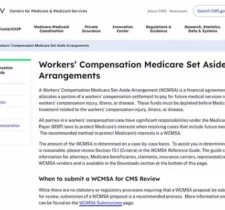Social Security Disability benefits (DIB), or Title II benefits, are given to
individuals who are unable to work at a “substantial,” gainful level and their
condition has existed or is expected to exist for at least a 12-month period.
To be eligible for this benefit, a claimant must have worked long enough and
paid enough into Social Security through their FICA taxes to be “insured.” As a
general rule, if a claimant worked at least five of the last 10 years, he or she would
be “insured” for purposes of disability insurance benefit. How much a claimant
receives each month, if found disabled and entitled to his benefit, is based on
how much he/she has “paid into” the system during his or her working life.
Generally, the longer someone has worked and the higher the earnings, the
more the individual would be paid if found disabled. Individuals found disabled and
entitled to these benefits may be awarded retroactive benefits. Retroactive
benefits can only go back one year from the date of the initial application.
There is a five-month waiting period from the date the claimant is determined
to be disabled until entitlement to these benefits begins.
Individuals approved for disability benefits are entitled to Medicare
coverage two years from their first month of entitlement (five full month
waiting period plus two years).
We will take the time to explain how this
process works and answer your questions, allowing you to have realistic expectations and know where you stand at each step of this complex process.
If your claim for Social Security Disability benefits has been denied, it is crucial your appeal the denial within 60 days.







